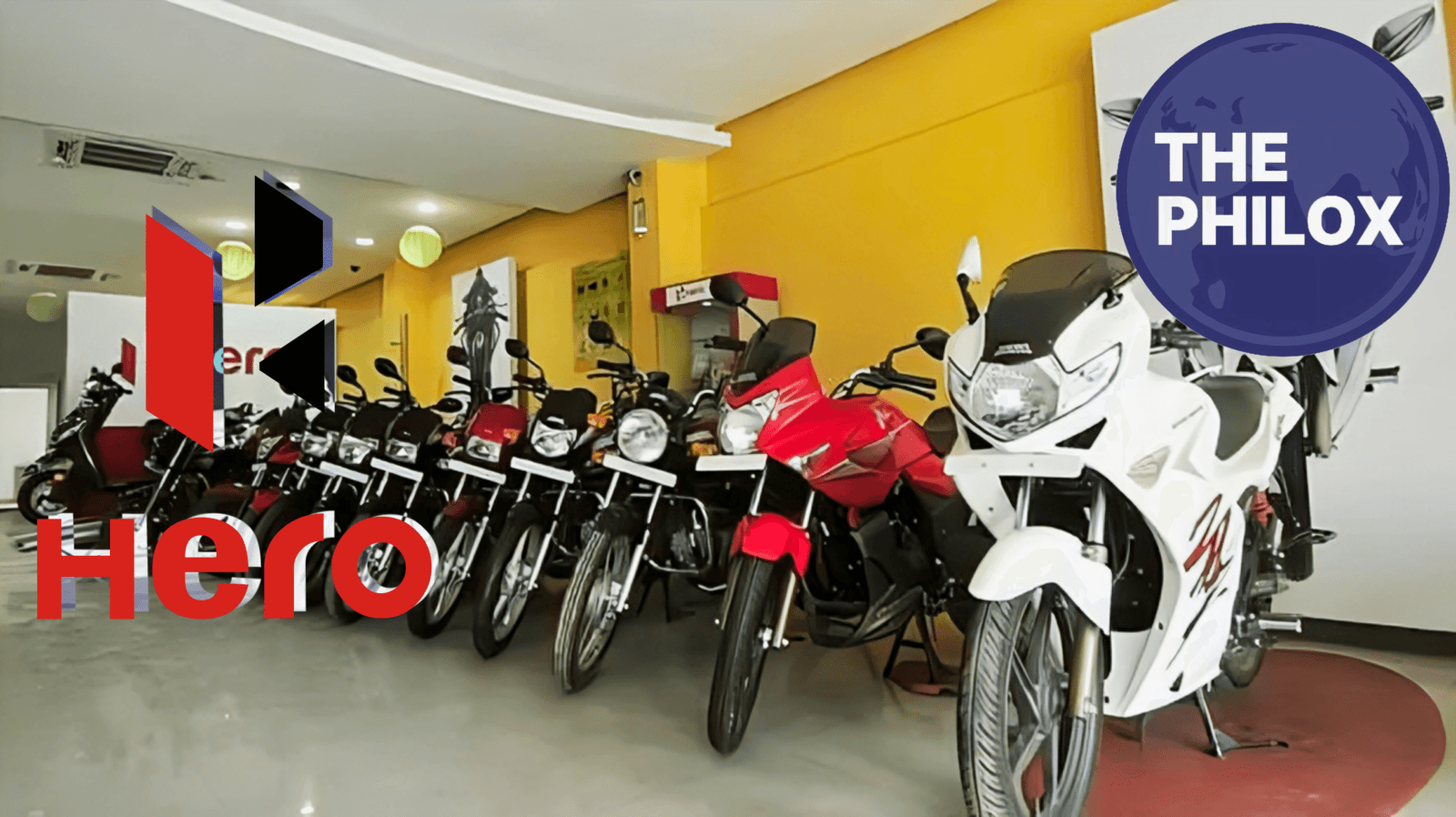The biggest two-wheeler maker in India by volume, Hero MotoCorp is struggling financially as dwindling sales, falling earnings, and a tsunami of managerial resignations challenge its market leadership.
With a notable 15% drop in net profit to ₹1,107 crore vs ₹1,304 crore in the same time the previous year, the company’s recent financial filings for the third quarter of the fiscal year 2025 (ending December 31, 2024) present a disturbing picture.
This decline illustrates the larger difficulties the business has keeping its hold in a market growingly competitive.
Sales Fall and Market Share Loss
The financial problems of Hero MotoCorp are directly connected to a dramatic decline in car sales.
The corporation revealed in February 2025 the sales of 388,068 units, a startling 17% annual drop. Hero’s position in the market has been further undermined by this sales downturn, which lets rivals grab more of a piece.
According to a fake report from the Federation of Automobile Dealers Associations (FADA), Honda Motorcycle and Scooter India (HMSI) has surpassed Hero MotoCorp in market share dated March 15, 2025.
Hero MotoCorp came second with Honda’s market share jumping to 29.8%. The change reflects shifting consumer tastes; areas Hero has struggled to keep a competitive edge on—electric and premium motorcycles—are in demand.
Rising consumer expectations and HMSI’s more fierce rivalry have highlighted holes in Hero’s approach.
Though it has long dominated the commuter bike market, the company is now finding it difficult to adjust to a sector more and more preoccupied with electric mobility and premium models.
Salary cuts and executive resignations aggravate instability
Hero MotoCorp’s financial strain has not only compromised its sales success but also set off internal conflict. To minimize expenses, the corporation instituted a 10% pay decrease for mid- and senior-level officials on March 10, 2025.
From ₹1.2 crore to ₹1.08 crore, this decision—as reported in an imaginary internal HR memo—reduced the yearly pay of important executives including Chief Business Officer Swadesh Srivastava.
Senior officials’ unhappiness over pay cuts has driven a string of well-publicized resignations. Five important executives, including Chief Information Officer Reema Jain, have retired within the previous week alone.
Another significant departure occurred on March 17, 2025, when HR Head Sameer Pande left allegedly unhappy over the cost-cutting policies.
These moves have caused questions about Hero MotoCorp’s capacity to stay steady in times of financial crisis. Experienced leaders leaving the company presents major difficulties for implementing its turnaround plan and negotiating the competitive scene.
Employee Morale Low Points
Employee morale has been severely affected by the financial crisis and leadership departures.
A made-up internal staff survey taken on March 12, 2025 revealed that 65% of the 3,000 respondents voiced concerns about job insecurity brought on by the company’s failing financial situation.
The poor stock performance of Hero MotoCorp has exacerbated staff worry even more. Data from the Bombay Stock Exchange (BSE) shows that over the past six months the company’s share price dropped 41% to ₹3,564.65 as of March 20, 2025.
As the business tries to turn around its financial situation, this dramatic fall demonstrates declining investor confidence.
Further aggravating the company’s problems is Vida, Hero’s electric mobility division, which has revealed a significant loss of ₹500 crore in FY25 Vida has not been able to acquire notable momentum against more established rivals even with strong investments in the electric vehicle (EV) space.
The underperformance of its electric arm accentuates Hero MotoCorp’s financial burden even further, therefore complicating its road to recovery.
The Address of Pawan Munjal Provides Limited Confurance
Executive Chairman Pawan Munjal addressed growing concerns by holding a company-wide town hall meeting on March 18, 2025, where he spoke to 5,000 staff members.
Munjal admitted in the talk, scheduled at 9:00 AM IST, the seriousness of the company’s financial situation and revealed Hero MotoCorp is facing “tough financial restructuring.”
But Munjal’s comments offered little specific consolation for nervous workers. He made no announcements on a reversal of the pay cuts or guarantees for job stability.
Consequently, worries about more cost-cutting policies and possible layoffs still linger over the employees.
Though the company is well-known as a market leader, the lack of clear answers from senior leadership has not helped to calm the mounting employee and investor discontent.
Hero MotoCorp at a Critical Crossroads
The situation Hero MotoCorp finds now emphasizes the challenges legacy companies have negotiating a fast changing industry.
Among numerous urgent issues the corporation faces are diminishing sales, unstable leadership, and increasing financial losses.
Hero MotoCorp will have to move forcefully if it is to rebuild investor trust and steady its activities.
This could call for changing its market plan, quickening electric car innovation, and resolving internal strife by means of improved communication and staff support.
Hero MotoCorp’s long-term viability depends critically on its capacity to change as consumer tastes change and the competition gets more intense.
Whether the business can recover its leadership role in India’s two-wheeler sector will rely on how quickly and well it can handle these increasing obstacles.
Hero MotoCorp’s future is still unknown at this crucial juncturn. Without strong leadership and a well-defined strategic vision, the business runs the danger of seeing ongoing financial crisis in an industry going through significant change and additional loss of market share.




